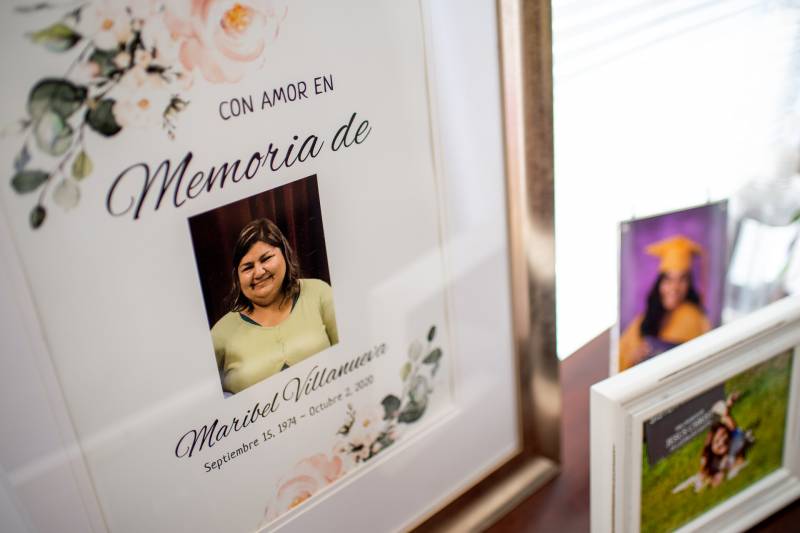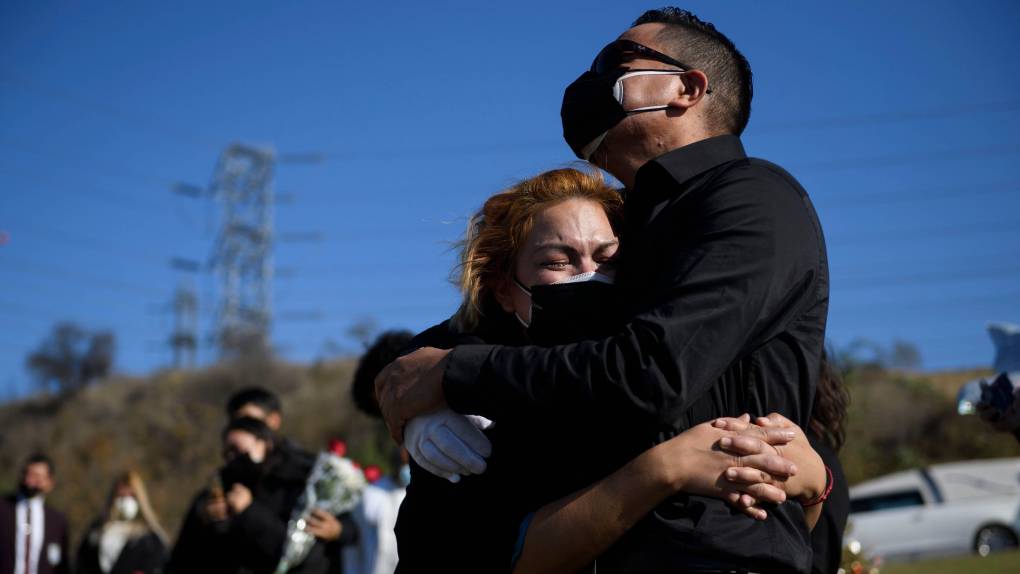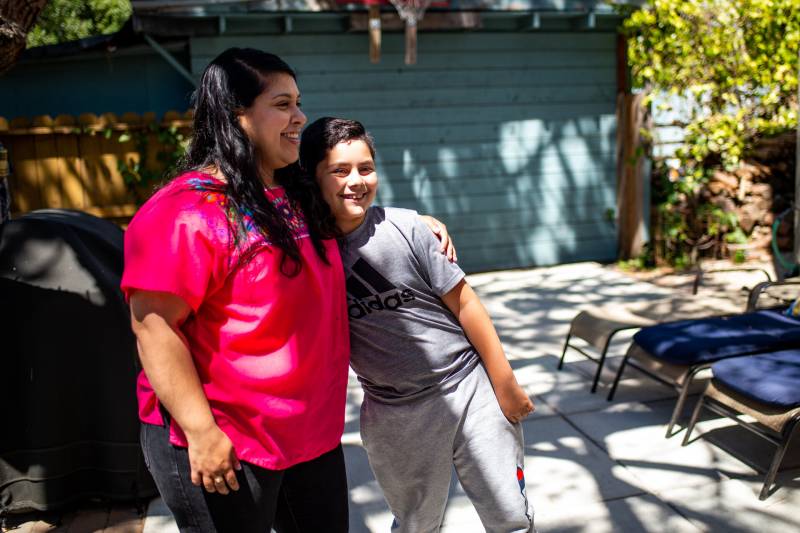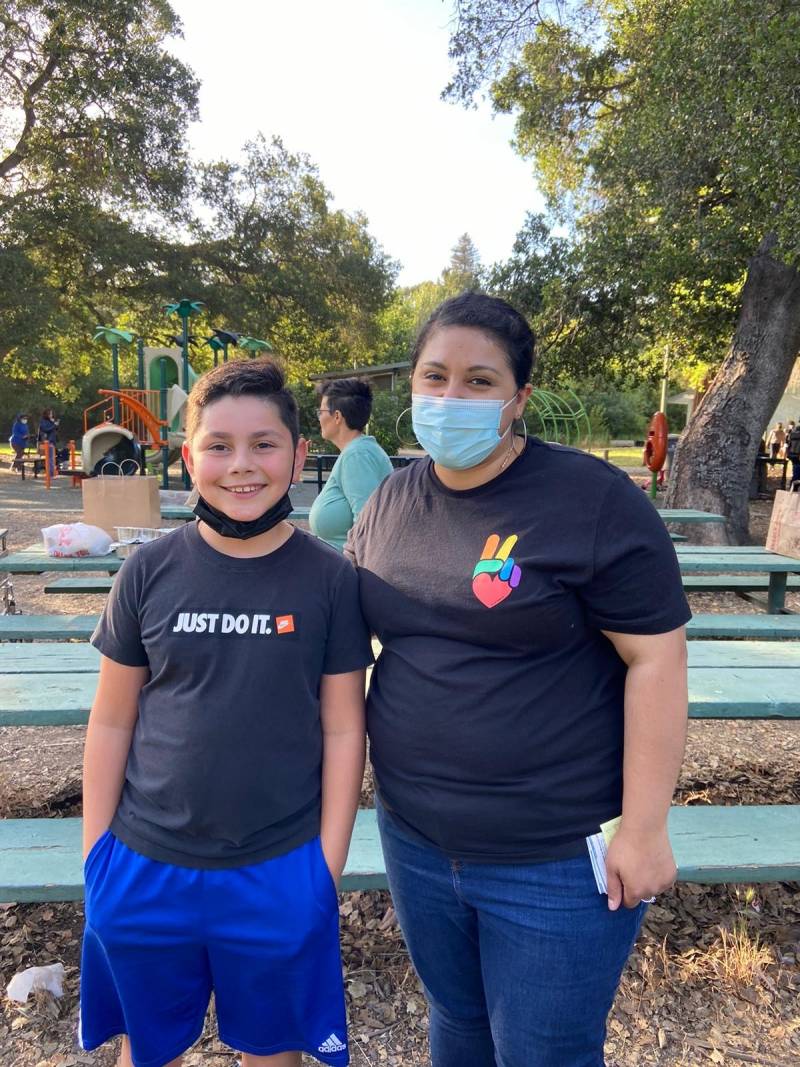More than 60,000 Californians have died from COVID-19, and The California Report Magazine has launched a series to remember some of them. This week’s tribute honors Maribel Villanueva, who died last October at 46, leaving behind her 10-year-old son, David. David’s aunt, Susana Villanueva Torres, and his teacher, Mayra Alvarado, say Maribel’s death called each of them to take on roles they never imagined.
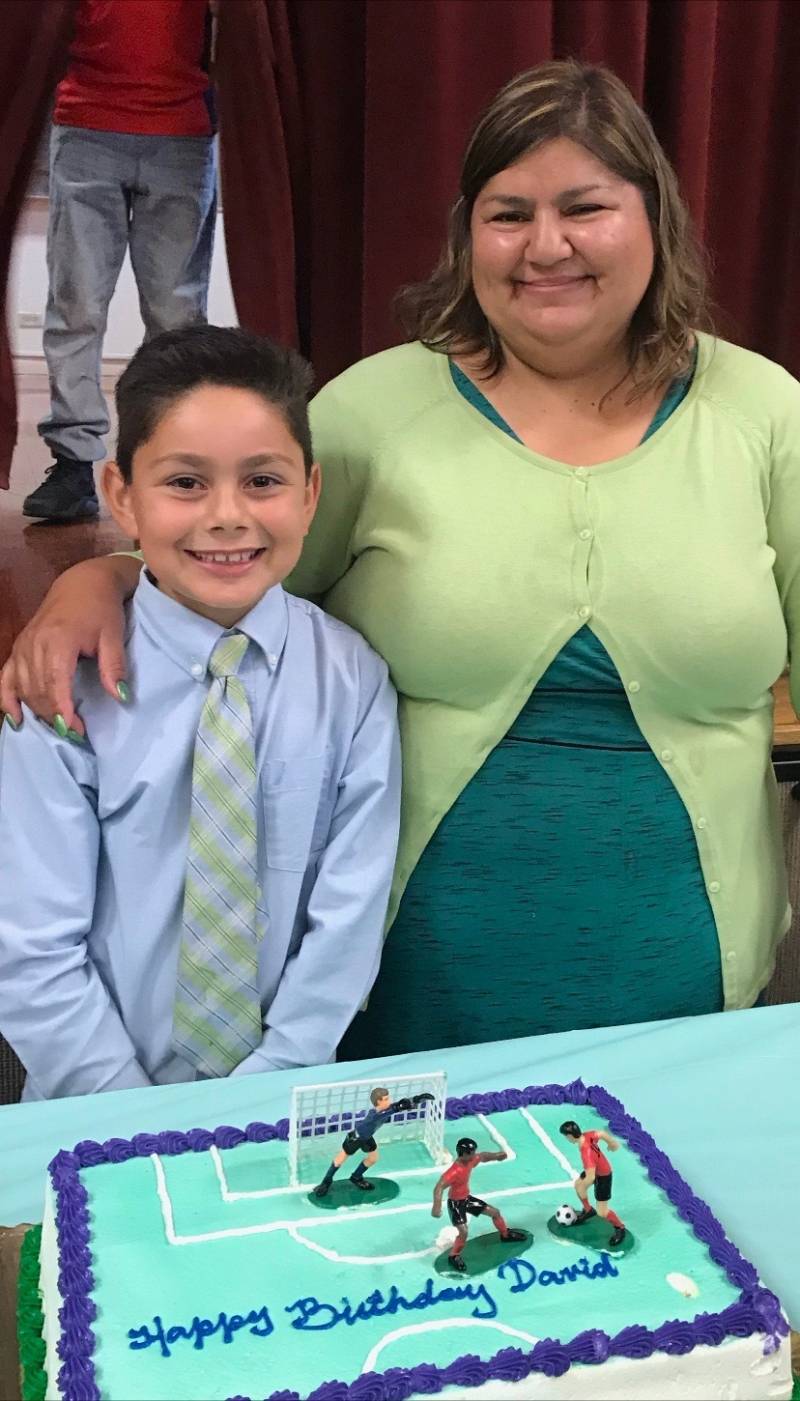
“It’s hard to lose your mom at 10 years old, especially when you didn’t have a chance to say goodbye,” said Susana Villanueva Torres, David’s aunt. Her sister, Maribel Villanueva, was a single mom. After her death, Torres and her husband took custody of David.
In a way, David’s elementary school teacher also became a sort of surrogate mom when he eventually returned to class, though Mayra Alvarado recalls not being prepared whatsoever to handle the death of a school parent. “I was just in shock. I was like, no, this can’t be happening. I know [COVID deaths] happen especially in our communities. But I still was in disbelief.”
It’s been painful to lose so many of our elderly to COVID-19. But there are also many families, especially Latino families, grieving the deaths of those who are younger. Maribel Villanueva was one of 2,389 Latino residents between the ages of 34 and 49 in the state who died; by comparison 333 whites in that age group died. The ripple effect of death in those families has been life altering.
Being the Best Mom Despite Hardships
Torres had always thought of her older sister as resilient. Maribel — everyone called her Mari — was the middle child. “She fought the good fight when she was here,” Torres said. “Like everybody else she had moments of hardship.”
Sitting on the front porch of her two-story home in Oakland, Torres said that hardship was one reason she and her husband welcomed Mari, her son and his grandmother to live under their wing, in a downstairs apartment, for little rent. “We grew up in a domestic violence, alcohol kind of environment. It was hard. I was able to cope in a different way than she did. She was very sensitive. David’s dad not being around … it was hard.”
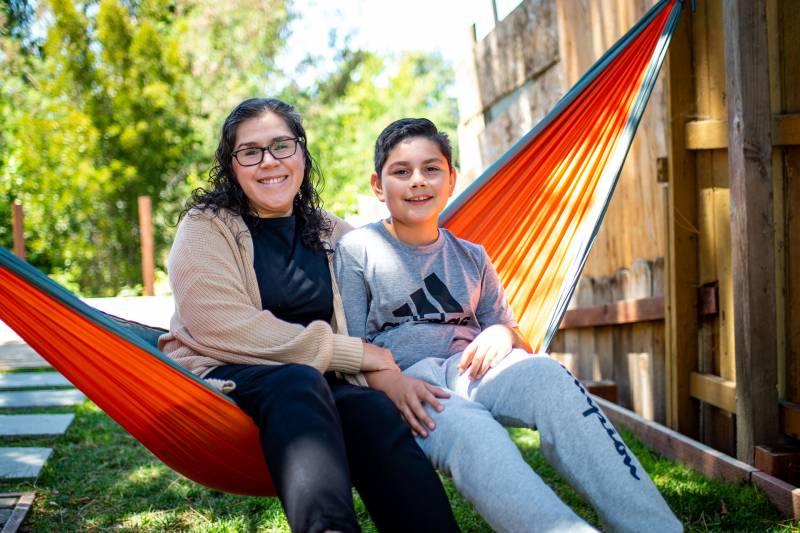
Torres said her sister was a terrific cook, and loved children, always babysitting her niece and nephew when they were young. Mari found work in a child care center and also cleaned homes. What Mari earned she spent on instilling in her son, David, a sense of possibility, Torres added.
On one occasion, David’s mom saved up to take him to the Monterey Bay Aquarium. Not having access to a car made the trip less convenient, but they managed with public transit. Tickets alone would have cost her almost $90. “And they stayed there for a weekend. Her plan was to take him to Disneyland for one of his birthdays,” Torres said.
When Mari got sick, Torres was the one who drove her to the community clinic and then to the hospital, and connected with her via Zoom. She recalled telling her sister, “Stay strong, keep fighting. David, it’s fine. He’s here with us, don’t worry about him.”
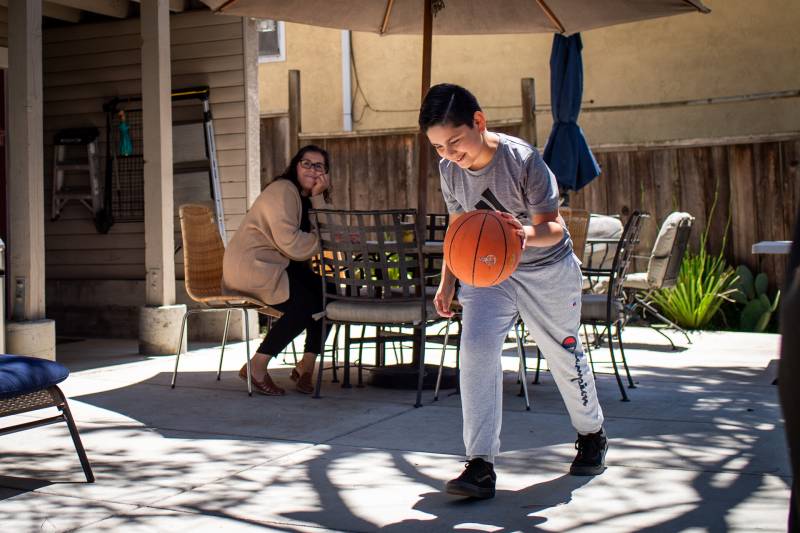
It fell on Torres to set up the last virtual visit with Mari and her son. She was also the one who had to make the hard decisions when the doctors said there was nothing more to be done.
“It just happened really quick,” she said. “You don’t have time to say goodbyes, [don’t] have time to be there with them in their hardest moments.”
